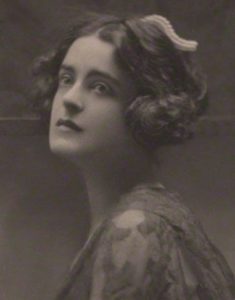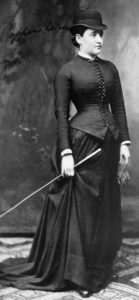The Man Who Powered Europe—and Zionism
 Yonah Yosipovich Leibensohn Kremenezky (1850-1934) was born in Odessa, Ukraine to a Russian-Jewish family. He studied electrical engineering and worked on designing Russia’s first railways. In 1874, Kremenezky moved to Berlin to further his studies at the city’s Technical University. He then got a job working for Siemens, and was sent across Europe to build the continent’s first street lighting systems, starting in Paris and ending up in Vienna in 1878, where he settled permanently. Two years later, Kremenezky founded his own factory that produced lamps and batteries—the first of its kind in the Austro-Hungarian Empire. By 1883, he had become very well-known as a scientist-industrialist (a European Edison), and Crown Prince Rudolf personally asked him to help “electrify” his empire. Kremenezky did just that, laying electrical cables and setting up lighting systems, as well as building the empire’s first power plant. Meanwhile, his lamp factory designed all sorts of new lights, including ornamental bulbs and what we now know as “Christmas lights”. Kremenezky lights were a huge hit, exported around the world, even to the United States. For playing a key role in rebuilding and repowering Vienna after World War I, Kremenezky was awarded with the Ehrenbürgerrecht, the city’s highest decoration for citizens (a street in Vienna was named after him, too). Meanwhile, back in 1896, Kremenezky had met Theodor Herzl and the two became best friends. Kremenezky became a passionate Zionist, gave countless funds in support of the movement, as well as essential electrical know-how to power the future State. In 1898, he set a 500-franc prize for anyone who would write a fitting hymn for the Zionist movement. This eventually led to the adoption of HaTikvah as Israel’s national anthem. Around the same time, Hermann Schapira proposed the establishment of a Jewish National Fund that would legally purchase land in Israel and help settle Jews there. Schapira didn’t live to realize his dream, but Kremenezky was convinced and established the Jewish National Fund a couple of years later, serving as its first chairman. It was he who came up with the JNF “blue box” to collect charity. The JNF went on to play a central role in the establishment of Israel, purchasing over 50% of Israel’s landmass, developing some 250,000 acres of its land, building nearly 200 dams and reservoirs, and establishing over 1000 parks. Perhaps most famously, the JNF has planted over 260 million trees in the Holy Land, partly thanks to its Tu b’Shevat tree-planting drive which still runs to this day. A true friend, Kremenezky was the only one by Herzl’s bedside when he passed away, and financially supported Herzl’s family afterwards. When Kremenezky himself passed away, he was eulogized as a “simple, modest Jew, who did a great for the Zionist movement.” He was awarded the prestigious Wilhelm Exner Medal for excellence in scientific research and innovation, and multiple institutions and streets in Israel are named after him.
Yonah Yosipovich Leibensohn Kremenezky (1850-1934) was born in Odessa, Ukraine to a Russian-Jewish family. He studied electrical engineering and worked on designing Russia’s first railways. In 1874, Kremenezky moved to Berlin to further his studies at the city’s Technical University. He then got a job working for Siemens, and was sent across Europe to build the continent’s first street lighting systems, starting in Paris and ending up in Vienna in 1878, where he settled permanently. Two years later, Kremenezky founded his own factory that produced lamps and batteries—the first of its kind in the Austro-Hungarian Empire. By 1883, he had become very well-known as a scientist-industrialist (a European Edison), and Crown Prince Rudolf personally asked him to help “electrify” his empire. Kremenezky did just that, laying electrical cables and setting up lighting systems, as well as building the empire’s first power plant. Meanwhile, his lamp factory designed all sorts of new lights, including ornamental bulbs and what we now know as “Christmas lights”. Kremenezky lights were a huge hit, exported around the world, even to the United States. For playing a key role in rebuilding and repowering Vienna after World War I, Kremenezky was awarded with the Ehrenbürgerrecht, the city’s highest decoration for citizens (a street in Vienna was named after him, too). Meanwhile, back in 1896, Kremenezky had met Theodor Herzl and the two became best friends. Kremenezky became a passionate Zionist, gave countless funds in support of the movement, as well as essential electrical know-how to power the future State. In 1898, he set a 500-franc prize for anyone who would write a fitting hymn for the Zionist movement. This eventually led to the adoption of HaTikvah as Israel’s national anthem. Around the same time, Hermann Schapira proposed the establishment of a Jewish National Fund that would legally purchase land in Israel and help settle Jews there. Schapira didn’t live to realize his dream, but Kremenezky was convinced and established the Jewish National Fund a couple of years later, serving as its first chairman. It was he who came up with the JNF “blue box” to collect charity. The JNF went on to play a central role in the establishment of Israel, purchasing over 50% of Israel’s landmass, developing some 250,000 acres of its land, building nearly 200 dams and reservoirs, and establishing over 1000 parks. Perhaps most famously, the JNF has planted over 260 million trees in the Holy Land, partly thanks to its Tu b’Shevat tree-planting drive which still runs to this day. A true friend, Kremenezky was the only one by Herzl’s bedside when he passed away, and financially supported Herzl’s family afterwards. When Kremenezky himself passed away, he was eulogized as a “simple, modest Jew, who did a great for the Zionist movement.” He was awarded the prestigious Wilhelm Exner Medal for excellence in scientific research and innovation, and multiple institutions and streets in Israel are named after him.
Words of the Week
There is no significant example in history, before our time, of a society successfully maintaining moral life without the aid of religion.
– Will Durant

 Harriet Pearl Alice Cohen (1901-1967) was born in London, England to a Jewish family with Russian heritage. She started playing piano in early childhood, and by age 13 won the Ada Lewis Scholarship and the Sterndale Bennett Prize from the Royal Academy of Music. A year later, she made her professional debut and soon became one of the most popular musicians in England. She was noted for resurrecting old English compositions that had been forgotten, as well as opening up Spanish and Russian music to the wider world. In fact, she was permitted to visit the Soviet Union (and perform there) in 1935, bringing back great compositions by contemporary Russians that she then performed around the world. While visiting Vienna in 1933, Cohen first recognized the plight of refugees fleeing Nazi Germany. She decided to devote herself to their cause. Cohen went on to raise large sums of money to support the refugees, and worked with several organizations to bring them to safety. In 1934, she performed a special benefit concert, with
Harriet Pearl Alice Cohen (1901-1967) was born in London, England to a Jewish family with Russian heritage. She started playing piano in early childhood, and by age 13 won the Ada Lewis Scholarship and the Sterndale Bennett Prize from the Royal Academy of Music. A year later, she made her professional debut and soon became one of the most popular musicians in England. She was noted for resurrecting old English compositions that had been forgotten, as well as opening up Spanish and Russian music to the wider world. In fact, she was permitted to visit the Soviet Union (and perform there) in 1935, bringing back great compositions by contemporary Russians that she then performed around the world. While visiting Vienna in 1933, Cohen first recognized the plight of refugees fleeing Nazi Germany. She decided to devote herself to their cause. Cohen went on to raise large sums of money to support the refugees, and worked with several organizations to bring them to safety. In 1934, she performed a special benefit concert, with 